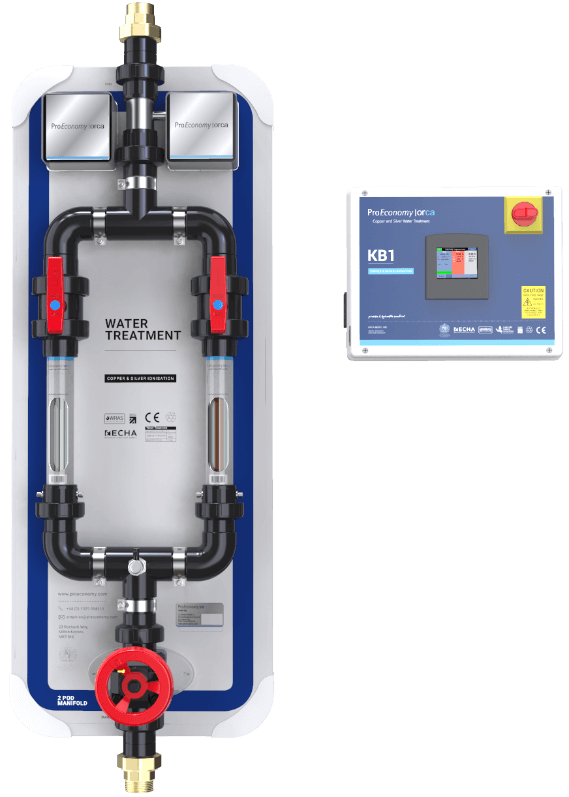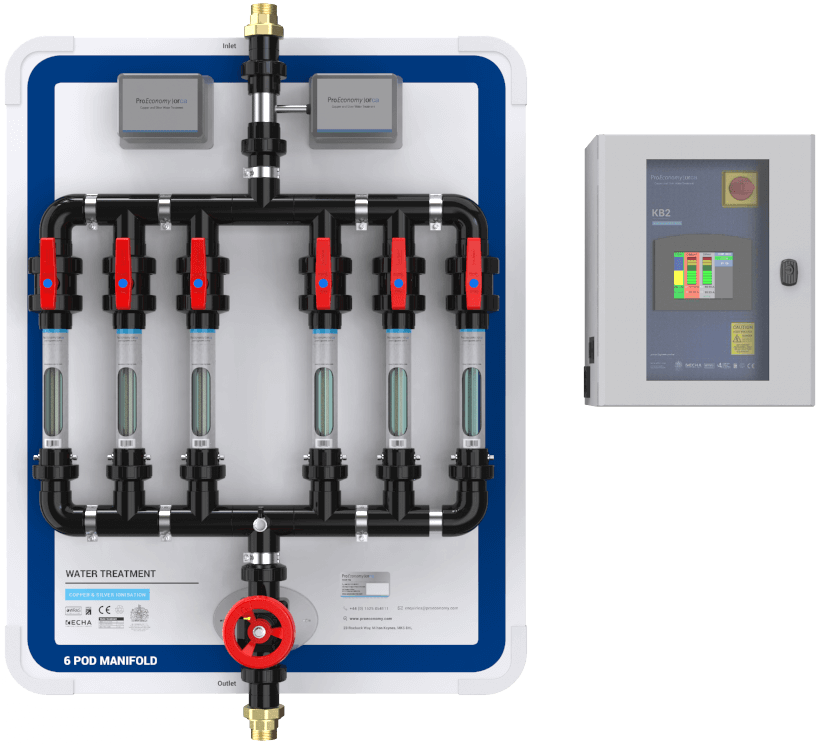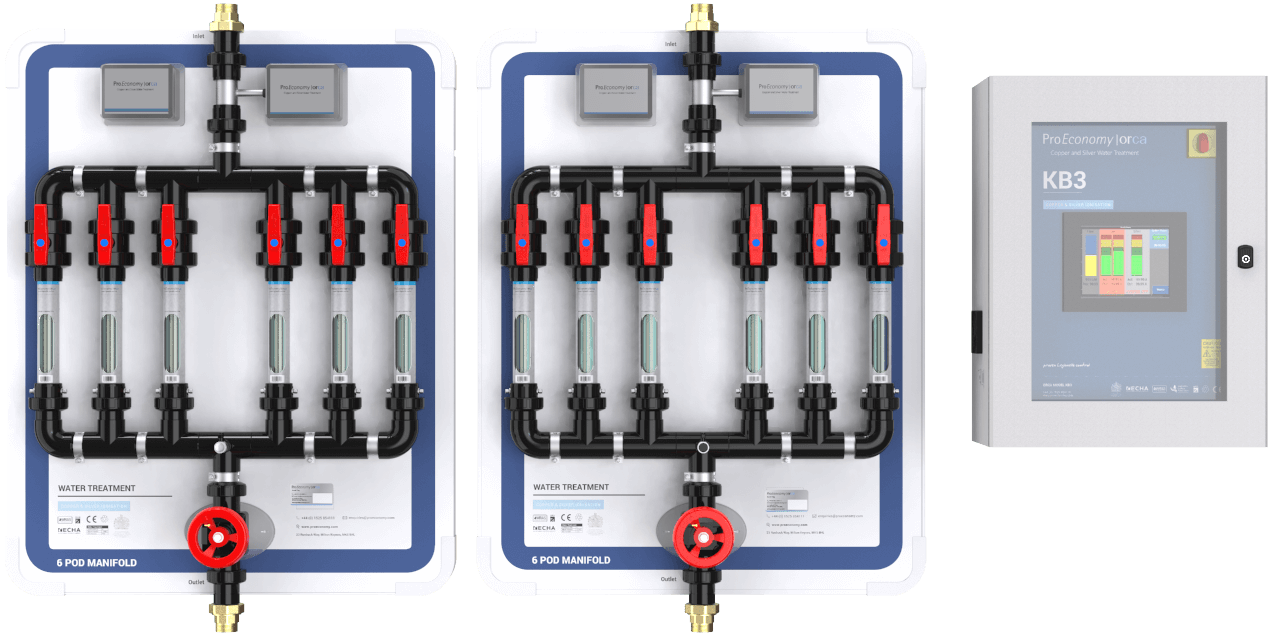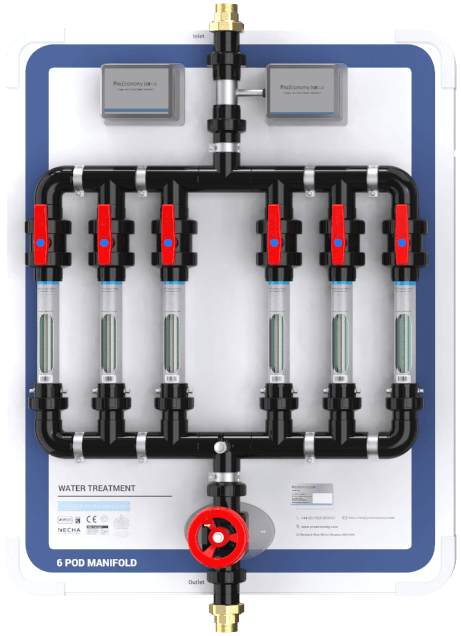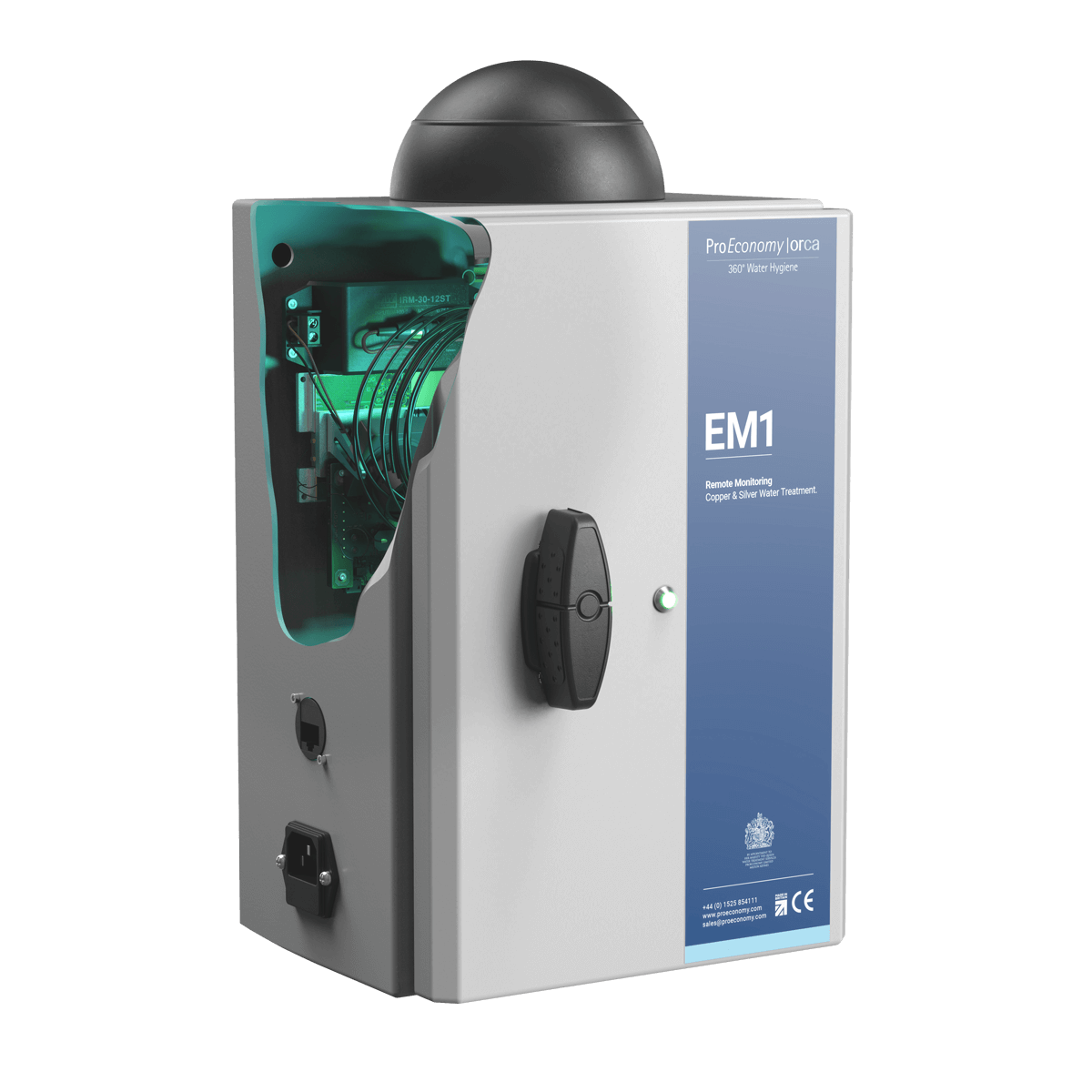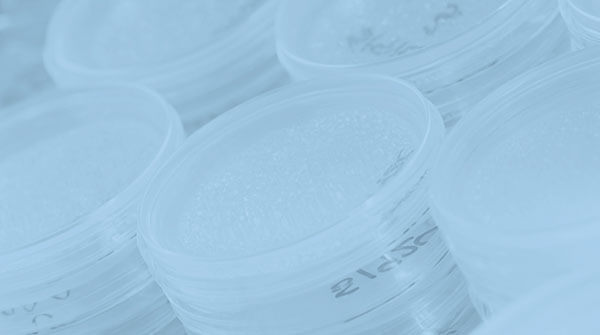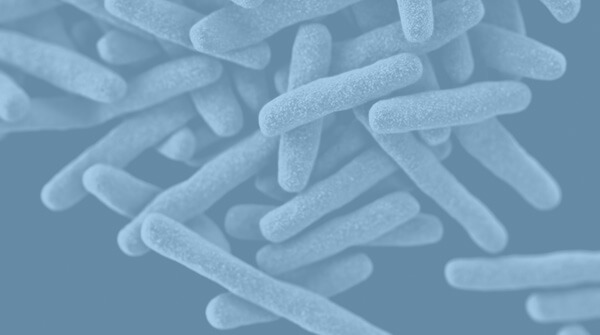As part of their ‘new hospital building programme’,[1] the UK government are planning to invest billions building and updating hospitals. Meanwhile, the UK government is also aiming for the UK to be carbon neutral by 2050.[2]
By using the Orca copper silver ionisation system at lower temperatures for hospital water treatment, both government initiatives can be realised: reducing the UK’s carbon footprint and providing safe, ‘world-class healthcare services for patients’.
Currently, Legionella control regulations recommend keeping a site’s hot water at 60°C or above in order to prevent bacterial growth.[3] This introduces the need for thermostatic mixing valves (TMVs) to combine hot and cold water in order to avoid risk of scalding. These are expensive and are known to increase Legionella risk by providing a site for microbiological growth as well as increasing cleaning and maintenance costs.
Although maintaining high temperatures has long been considered the optimum water treatment method for hospitals, and indeed is still the current recommendation from the HSE,[4] it is no longer sustainable, nor practical for use in new build hospital sites, given the government’s bid to become carbon neutral and ‘modernise our primary care estate’ with investments in new ‘technology’. Instead, studies[5] indicate that using a copper silver ionisation system at reduced water temperatures is a proven, viable alternative for hospital water treatment in order to simultaneously control Legionella and deliver reduced carbon footprint and energy consumption.
Between September 2011 and June 2017 one thousand, five hundred ninety-eight water samples were collected from a new build linked to a large healthcare facility in the United Kingdom. At this new build hospital site, hot water is circulated at 43°C by design to test the efficacy of copper and silver ionisation to control L. pneumophila at lower water temperatures
Samples were tested for L. pneumophila, total viable counts and copper and silver ion levels. Energy consumption and water usage data were also collected to permit carbon emission calculations.
The results of this study demonstrated ‘effective (100%) L. pneumophila control throughout the study period with an average hot water temperature of 42°C.’[6]
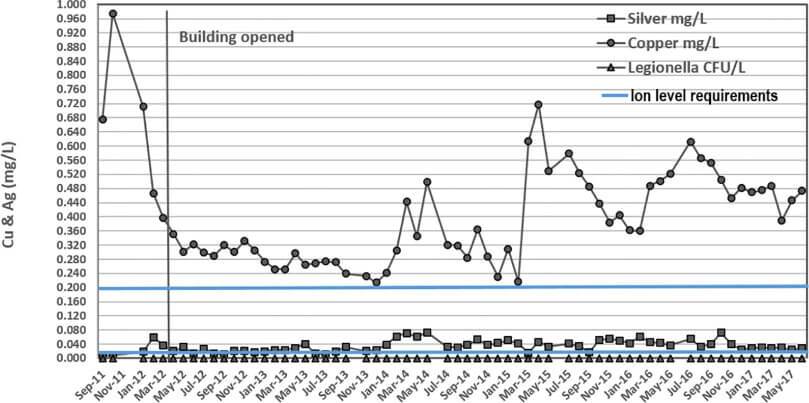
It is clear from the results of this study that the Orca copper silver ionisation system is the viable alternative water treatment method to high water temperatures and TMVs for the control of L. pneumophila in new build healthcare sites. Used as part of a well-managed water system, it can ‘100%’ control L. psoneumophila to reduce contamination risk and save patients’ lives.
In addition, the reduced water temperatures possible with copper silver ionisation is key to applying environmental sustainability in healthcare and achieving the UK government’s goal of carbon neutrality by 2050.
By reducing water temperatures in the aforementioned study, ‘energy savings and reduction of carbon emissions were calculated to amount to 33% and 24%, respectively, compared to an equivalent temperature-controlled system.’[7] If the Orca copper silver ionisation system was to be used within the government’s proposed new build hospital sites then the NHS would be well on track to reducing their greenhouse gas emissions and carbon footprint to approximately 4 MtCO2e per year.
Reducing energy consumption will also bring about huge cost savings that will be critical to the government’s new hospital building plan and the NHS’ ever-tightening budget.
In addition, the redundancy of expensive TMVs when water temperatures are reduced will eliminate the accompanying high-cost, time-consuming cleaning required, providing further savings as well as removing potential microbial growth sites.
The 2019 study by Elaine Cloutman-Green PhD,, Vera L.Barbosa PhD, and Diego Jimenez ME[8] has initiated discussion within the healthcare industry regarding Legionella control at lower temperatures, and indeed current Legionella control legislation. The ‘effective (100%) L. pneumophila control throughout the study period’ and the subsequent energy, carbon and cost savings demonstrate not only the effectiveness of the Orca copper silver ionisation system as a method of Legionella control but also the huge potential for this water treatment method to help achieve the UK’s aim to be carbon neutral by 2050 and indeed the successful ‘provision of world-class healthcare services for patients’ under the ‘new hospital building programme’. If hospital trusts want to save cost, save carbon and save lives then water treatment at lower temperatures with the Orca copper silver ionisation system should be considered as a credible alternative to the traditional approach.
References
[1] Department of Health and Social Care (2019), New hospital building programme announced, [Online]. Available from: https://www.gov.uk/government/news/new-hospital-building-programme-announced [Accessed 15/01/2020]
[2] BBC, BBC News, Climate change: UK government to commit to 2050 target [Online]. Available from: https://www.bbc.co.uk/news/science-environment-48596775 [Accessed 15/01/2020]
[3] HSE, Hot and cold water systems, [Online}. Available from: https://www.hse.gov.uk/legionnaires/hot-and-cold.htm [Accessed 14.01/2020]
[4] HSE, Hot and cold water systems, [Online}. Available from: https://www.hse.gov.uk/legionnaires/hot-and-cold.htm [Accessed 14.01/2020]
[6] Cloutman-Green, Elaine, L.Barbose Vera, Jimenez Diego et al (2019) Controlling Legionella pneumophila in water systems at reduced hot water temperatures with copper and silver ionization. American Journal of Infection Control47(7):761-766. https://www.sciencedirect.com/science/article/pii/S0196655318311490#fig0002
[7] Cloutman-Green, Elaine, L.Barbose Vera, Jimenez Diego et al (2019) Controlling Legionella pneumophila in water systems at reduced hot water temperatures with copper and silver ionization. American Journal of Infection Control47(7):761-766. https://www.sciencedirect.com/science/article/pii/S0196655318311490#fig0002
[8] Cloutman-Green, Elaine, L.Barbose Vera, Jimenez Diego et al (2019) Controlling Legionella pneumophila in water systems at reduced hot water temperatures with copper and silver ionization. American Journal of Infection Control47(7):761-766. https://www.sciencedirect.com/science/article/pii/S0196655318311490#fig0002
